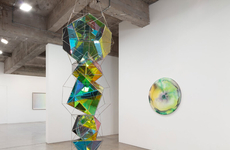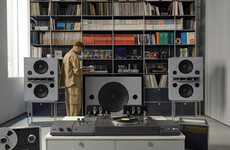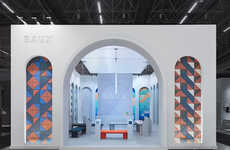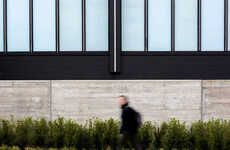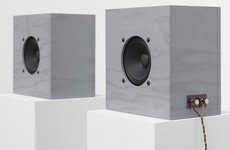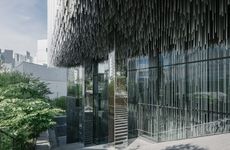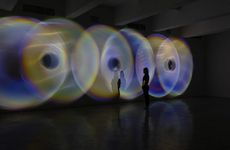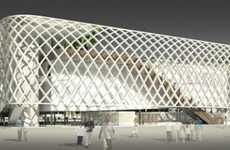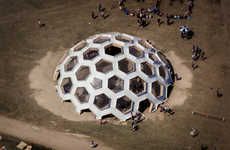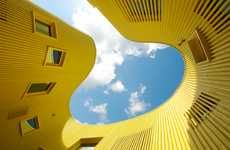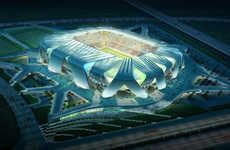
The Celeton Excessive Music Hall Embodies the Sensory Experience of Sound
Amelia Roblin — July 11, 2012 — Art & Design
References: excessive-hda.blogspot & suckerpunchdaily
Alexander Smaga has admirably endeavored to translate the experience of listening to music into the Celeton Excessive Music Hall. Only in the dreams of many architects would they take on and work through a proposal so conceptual and so creatively demanding.
Nevertheless, here we have a Viennese concert hall designed to look to the eyes and feel to the skin the way that songs and instrumental pieces sound to the ears. A very challenging task indeed! Ultimately influenced by the creator's own subjective appreciation of the auditory arts, this abstract and imaginative piece of architecture embodies color, fluidity and a permeability through its organic coral and brain-like structures. The Celeton Excessive Music Hall is a rhapsody for all of the senses.
Nevertheless, here we have a Viennese concert hall designed to look to the eyes and feel to the skin the way that songs and instrumental pieces sound to the ears. A very challenging task indeed! Ultimately influenced by the creator's own subjective appreciation of the auditory arts, this abstract and imaginative piece of architecture embodies color, fluidity and a permeability through its organic coral and brain-like structures. The Celeton Excessive Music Hall is a rhapsody for all of the senses.
Trend Themes
1. Sensory Architecture - Utilizing architectural design to evoke sensory experiences outside of traditional aesthetics.
2. Synesthesia Design - Creating spaces that replicate the sensory experience of different art forms.
3. Immersive Environments - Designing spaces that fully engage multiple senses to create a unique experience.
Industry Implications
1. Entertainment - Creating innovative concert venues that go beyond the traditional auditory experience.
2. Architecture - Exploring new ways to incorporate sensory elements into architectural design.
3. Hospitality - Enhancing guest experiences by integrating sensory elements into hotel and resort design.
3.2
Score
Popularity
Activity
Freshness



